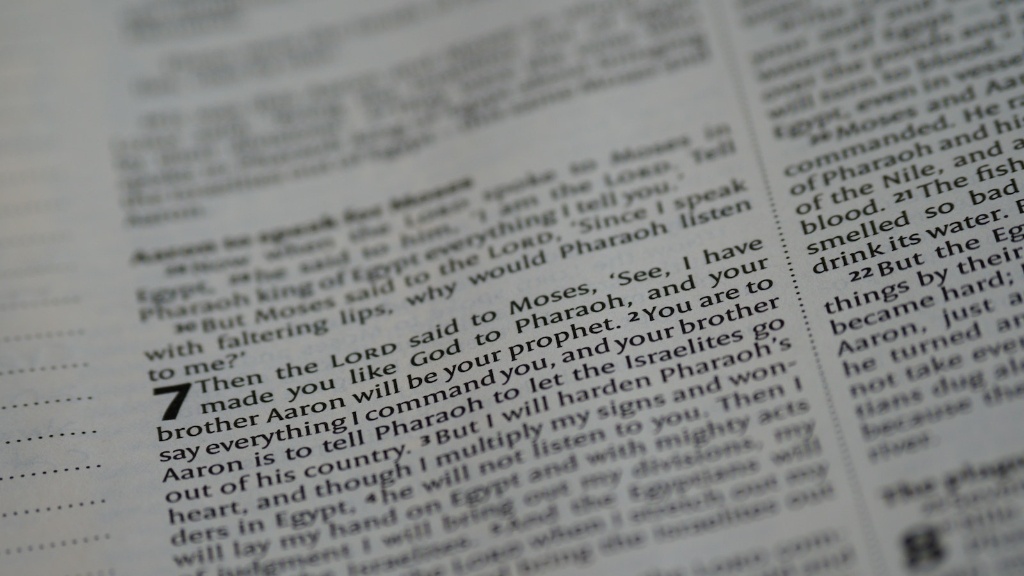Background Information
The Book of Job is a book of the Hebrew Bible and is part of the Ketuvim, which is the third and final section of the Tanakh. It is thought to have been written between the 5th and 4th centuries BCE, and the majority of scholars believe it was written by an unknown author or authors and later attributed to Moses during the period of Ezra.
The book centres around the figure of Job, a righteous man of Edom who suffers a series of calamities that tests his faith in God. The narrative of the book is paralleled by Job’s own response to his trials, and by a series of dialogues between him, his three friends, and God. Although the plot of the book is not specifically stated, it is presumed that Job is eventually rewarded for his faith and fortitude in the face of great suffering.
Historical Context
The Book of Job provides eloquent testimony of the religious culture of ancient Israel. It contains elements of wisdom literature, which includes didactic instruction, and its prose and poetry reflects the poetical and rhetorical tradition of the period.
The themes and concepts explored in the Book of Job are deeply rooted in the religion of ancient Israel. In particular, Job’s difficulty with theodicy (the problem of reconciling the presence of evil in the world with the notion of a just God) is a central issue in the book. The nature of divine justice and providence are also examined in the narrative.
Although the author of the Book of Job is unknown, the book reflects the religious culture of ancient Israel. It is believed that the work was composed in the period of the Babylonian exile, and that the author may have been heavily influenced by Mesopotamian literature.
Understanding the Book of Job
In order to understand the Book of Job, it is essential to consider the various elements that make up the text. Some of the key themes explored in the book are the problem of evil and suffering, the nature of divine justice, and God’s relationship with humanity.
The Book of Job is a complex text and its overall purpose is open to debate. However, many commentators view the book as a moral challenge to the reader; it highlights the idea that humans are capable of making ethical and moral choices, but that spiritual rewards or punishments may not always be forthcoming.
The Book of Job also addresses the issue of faith. Despite the terrible suffering Job endures, he does not renounce God, nor does he rail against him, as many modern commentators might. Rather, he accepts his circumstances, and his own faith remains strong. This is seen as a testament to Job’s commitment to righteousness, and to his faith in the divine.
Interpretations of the Book of Job
The Book of Job has been the subject of numerous interpretations over the centuries. Many scholars have speculated about its authorship and have sought to uncover the meaning of its narrative.
In modern times, it has been interpreted as a powerful moral lesson, as an expression of existential despair, and as an exploration of a spiritual journey. Some commentators have also suggested that the Book of Job is a veiled critique of conventional religious beliefs, and that it challenges rigid notions of divine justice.
Modern Influences of the Book of Job
The Book of Job has made a lasting impression on modern thought. Its exploration of suffering and the divine has informed many spiritual traditions, including Judaism, Christianity, and Islam. Its themes and motifs have inspired countless works of literature, art, and philosophy.
More recently, the book has been used as a source of comfort in times of hardship and as a reminder of the need for faith, patience, and trust in the face of adversity. It continues to provide insight and hope in the face of difficult times, and it stands as a testament to the power of faith and resilience in the face of suffering.
Literary Significance of the Book of Job
The Book of Job is widely considered to be a masterpiece of human creativity and insight. Its impact on the history of literature and spiritual tradition is impossible to overstate, and many scholars have hailed its poetic poignancy and moral depth.
As philosopher and theologian Albert Schweitzer wrote: “Job holds in its hand a mirror in which every man can recognize his own sufferings and petitions, his doubts and his despair.”
Theology and Ideology of the Book of Job
The Book of Job is closely associated with the theology of Israelite religion. It reflects the beliefs of the Israelite people, and the manner in which they sought to reconcile suffering and divine justice. Scholars have noted a number of theological themes that are prevalent in the narrative, including the notion of divine retribution, the idea of human suffering as an opportunity to refine one’s faith and character, and the concept of free will and free choice.
The Book of Job also has implications for contemporary theology. In particular, the book can be seen to challenge the idea of a mechanical and predetermined world, and to suggest that the human soul and physical world are intertwined in a complex and unpredictable manner. Thus, the book offers a stimulating and thought-provoking exploration of some of the key concepts of theism.
Intertextuality in the Book of Job
Many commentators have noted the intertextuality of the Book of Job with other biblical texts, particularly the creation accounts found in Genesis and the visions of the prophet Ezekiel. It has also been suggested that the author of the book was familiar with Babylonian myths, and may have been consciously borrowing elements of these stories.
Furthermore, there is evidence to suggest that the Book of Job may have been written as a narrative dialogue; with characters such as Job and his friends being used to illustrate different points of view and to produce an engaged discussion of the text’s themes.
Linguistic Features of the Book of Job
The Book of Job is composed in a mixture of prose and poetry. This is typical of wisdom literature, and reflects the literary style of the period in which the work was created.
Many commentators have noted the complexity and sophistication of the book’s language. Its poetic passages combine a stark beauty with restrained brevity, while its prose sections are marked by a vivid attention to detail.
The book also reveals a deep sensitivity to the rhythms and music of biblical Hebrew, as well as a keen eye for rhetorical devices such as alliteration, parallelism, and assonance. The linguistic features of the book are oftentimes subtle and intricate, and they create a captivating and powerful narrative.
Themes and Motifs of the Book of Job
The Book of Job is rich in themes and motifs, some of which are interwoven throughout the text. These include suffering and hope, faith and doubt, divine justice, reward and punishment, and theodicy.
The Book of Job provides a window into the religious belief system of ancient Israel, and its themes and motifs continue to resonate with readers today. The interplay between divine power and human suffering is of particular relevance in our contemporary world, and the book offers an insightful and thought-provoking exploration of these issues.


